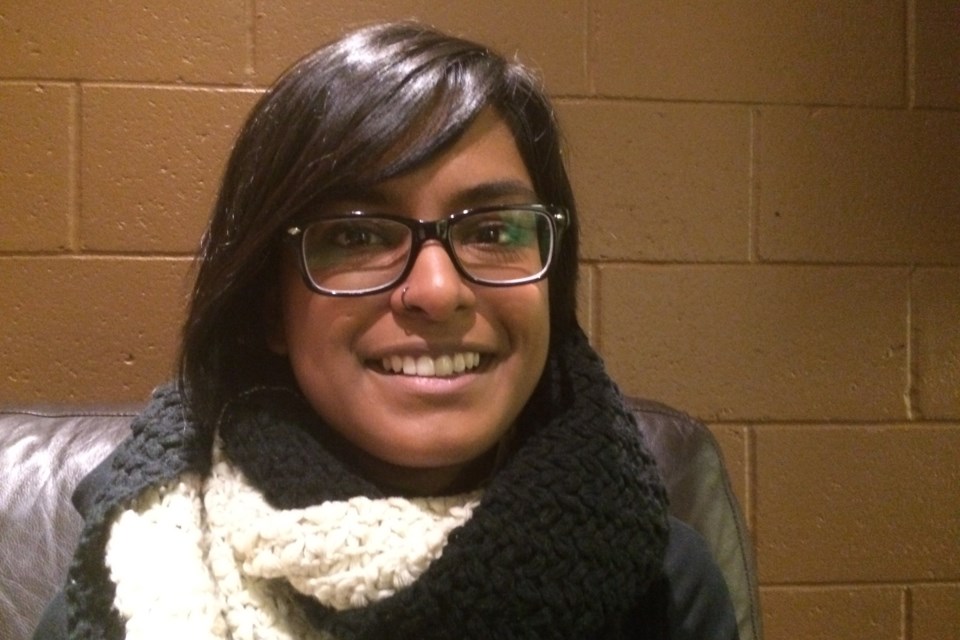Just minutes after Bushra Asghar was elected president of Algoma University Students' Union, some wag was posting the #notmypresident hashtag on her Facebook page.
The political science student specializing in international relations is indeed their new president, having decisively won last week's election with the largest turnout of any election in AUSU history.
And Asghar has a clear idea of what she wants to accomplish.
"I'm going in with very specific goals, because I know when you're in there, you only have a small time to get things done," she tells SooToday.
Asghar ran on a three-plank election platform:
- Increasing mental health support services on campus. "Currently, each student gets four sessions per academic year with their counsellor. I want to increase that, hopefully by 10. A lot of people don't end up getting help because they don't know that we even have a counsellor on campus."
- More student spaces on campus. Currently, students have use of the Speak Easy bar and the T-bird Lounge downstairs in Shingwauk Hall, but both areas are inaccessible when the main building closes at 11 p.m. "I want more spaces on campus because it looks like an asylum when you walk into our school, there's no life," Asghar says. She's hoping to design more comfortable and innovative student spaces, perhaps with help from Algoma's fine arts department, which is expected to move back to the main campus from the Machine Shop on the former St. Marys Paper property.
- Reconfiguring the university's food bank to make it more sustainable and accessible. "I know there's a lot of stigma around the food bank. Maybe change the name, so more students can access it without feeling guilty. Maybe call it the nutrition centre?"
Asghar also intends to continue lobbying for more accessible post-secondary education with reduced tuition and student debt.
She wants to review hours and prices at the Morningstar Market and Eatery. Students pay $3,500 for a food card, but find the cafeteria is open only until 9 p.m. on weekdays closing as early as 5 p.m. on weekends.
"They don't have access to get food from other places because this is what they've invested in," she says.
"Students function at a different time period than other people. We are up all night doing papers. So if you don't have access to food and you're broke, you just don't eat. That affects your mental health and that affects our retention at the university."
To see full results from the AUSU election, please click here.
